Here’s the Dystopian Novel You’ll Love, Based On Your Myers-Briggs® Personality Type
Anyone who knows me knows I love a good dystopian novel. There’s nothing like relaxing on the couch with a horrifying story of a potential future world where totalitarianism is king. With that in mind, I decided to come up with a list of some of the most popular dystopian novels and try to figure out which of the Myers-Briggs® personality types would enjoy them the most. What do you think? Agree? Disagree? Let me know!
Not sure what your personality type is? Take our personality questionnaire here. Or you can take the official MBTI® here.
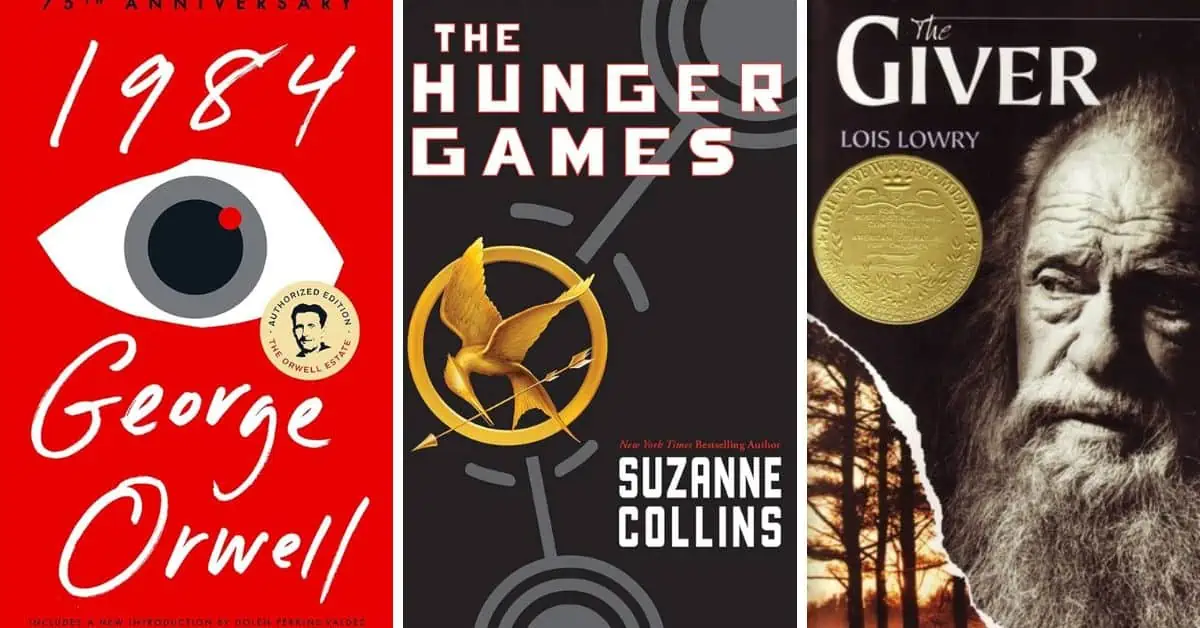
The Dystopian Novel You’ll Love, Based On Your Myers-Briggs® Personality Type
The INTJ – We by Yevgeny Zamyatin
“Now I no longer live in our clear, rational world; I live in the ancient nightmare world, the world of square roots of minus one.” – Yevgeny Zamyatin
We is widely acknowledged as the dystopian novel that laid the groundwork and cast the mold for the genre. Without it, we probably wouldn’t have George Orwell’s 1984. In fact, many people are kind of miffed at Orwell after reading We because they think it’s such a rip-off of Zamyatin’s original work. The novel traces the journey of D-503, a mathematician in a totalitarian society of the 26th century. In a world where individuality is suppressed, but comfort is paramount, he stumbles upon a life-altering realization: the existence of his very own soul. Even through numerous translations, this thought-provoking work from Russia has captivated and engaged a diverse audience, inviting them to reflect upon the profound value of personal liberty.
Why Would INTJs Like It?
INTJs want a story that will give them a vision of a possible future that could actually make sense. They need something that will go deep, pose big-picture questions, and stimulate not only their intellectual prowess but their deeper feeling side (yes, INTJs do have feelings). INTJs are thinking types, of course. And of course they need something that’s clever and intellectually stimulating, but they also want their passions ignited. Their introverted feeling side needs some room to breathe when they read and “We” is a perfect fit for this. It’s intellectual, overtly political, and it has a satisfying emotional component as well. The INTJ will enjoy the intricate details of the dystopian society and find themselves empathizing with the struggles of D-503 to reconcile his own individuality with the expectations of the collective.
Find out more about INTJs: The Childhood Struggles of INTJs
The ISTJ – The Giver by Lois Lowry
“If you were to be lost in the river, Jonas, your memories would not be lost with you. Memories are forever.” – Lois Lowry
The Giver is a timeless classic in dystopian literature that has influenced countless readers. This novel tells the story of Jonas, a young boy living in a seemingly perfect, albeit colorless and emotionless, community. However, things take a drastic turn when he is chosen to become the next “Receiver of Memory,” the person who carries all the past memories of the time before Sameness. As Jonas uncovers the truth behind his community’s existence, he faces a moral dilemma that forces him to question everything he has ever known.
Why Would ISTJs Like It?
ISTJs crave a comfortable, stable life and a sense of routine. But The Giver takes that to an extreme degree. What would happen in a world where everything is controlled? Where everything is forever the same? As much as ISTJs enjoy routine, they also have a strong sense of individuality, a reverence for the past, and a yearning to grow and learn and have a moral compass. The Giver takes the desire for sameness and predictability to a nightmarish place; posing the question, what would happen if we rid the world of differences, individuality, or memory?
The Giver is, in many ways, an ode to Introverted Sensing (Si) and Introverted Feeling (Fi). Si, the dominant function of ISTJs, involves a deep reverence for the past and a knack for recalling the minutest details. This is mirrored in the narrative as Jonas becomes the ‘Receiver of Memory,’ remembering all past events, traditions, experiences, and emotions that the community has purged in the quest for Sameness. The vivid descriptions of Jonas’ memories embody the essence of Si, illustrating the value of past experiences and how they shape our present and future.
On the other hand, Fi, though not the dominant function of ISTJs, plays a significant role in their decision-making process. It is about making value-based decisions, focusing on what feels right on a personal level. Jonas’ internal struggle with the inauthenticity and moral emptiness of his community reflects a Fi dilemma. The novel echoes this sentiment, emphasizing the importance of embracing the full spectrum of human emotions, both pleasant and unpleasant.
The Giver is a tale of conviction, memory, and hard choices in a world that prizes comfort over authenticity. It compellingly presents the journey of self-discovery, and will resonate with the ISTJ’s deeper, introverted emotional side.
Discover more about ISTJs: 12 Amazing Fictional ISTJ Characters
The INFJ – The Parable of the Sower by Octavia Butler
“Your teachers
Are all around you.
All that you perceive,
All that you experience,
All that is given to you
or taken from you,
All that you love or hate,
need or fear
Will teach you–
If you will learn.
God is your first
and your last teacher.
God is your harshest teacher:
subtle,
demanding.
Learn or die.” – Octavia Butler
The Parable of the Sower is a dystopian novel that takes the reader into a world ravaged by climate change and socioeconomic collapse. The protagonist, Lauren Oya Olamina, is a young woman with a unique condition called “hyperempathy,” causing her to feel the pain and pleasure of others. Despite the hostile environment she’s born into, Lauren dreams of a better future, cultivating a new philosophical framework, “Earthseed,” to navigate her reality. Her journey to establish a resilient community, founded on the principles of adaptability and mutual aid, unfolds as a testament of hope against the backdrop of a crumbling society.
Why Would INFJs Like It?
Of course for INFJs I had to pick the story with a character who has “hyperempathy.” Often called empaths, INFJs are known for their intuitive understanding of human emotions and feelings. They are known to natuarlly absorb others’ feelings; and this can be both a blessing and a curse at times. Being able to sense emotional wavelengths and feel fluctuations so vividly can be exhausting for many people. But INFJs, like Lauren, are determined to use this strength for good. INFJs are also visionaries; and will be drawn to Lauren’s vision of a better future and her determination to make it happen.
The Parable of the Sower has a rich, complex narrative that delves deeply into the human condition, societal structures, and philosophical questions — all elements that satisfy the INFJ’s intellectual curiosity and their need for meaningful engagement with a story. Brimming with profound themes and complex characters, this book offers an intellectual and emotional exploration that INFJs will find both challenging and rewarding.
Find out more about INFJs: 24 Signs You’re an INFJ, the Mystic Personality Type
The ISFJ – Uglies by Scott Westerfeld
“What you do, the way you think, makes you beautiful.” – Scott Westerfeld
Uglies is a captivating dystopian novel that explores themes of conformity, beauty, and personal identity. Set in a future society where everyone is made “pretty” through mandatory surgery at age 16, the story follows protagonist Tally Youngblood, who begins to question the values of her society as she uncovers the dark truth behind the operation. As she navigates this complex world, Tally must grapple with her personal desires, societal expectations, and a newfound sense of responsibility.
Why Would ISFJs Like It?
ISFJs want a story with compelling, relatable characters and with strong moral themes. Uglies gives them all that and more, with a suspenseful storyline and a quick pace that will put anyone on the edge of their seat. As detail-oriented individuals, they will enjoy the vivid world-building and the meticulous descriptions of the ‘pretty’ society. The novel’s exploration of the concept of beauty and the societal pressure to conform to certain standards aligns closely with the ISFJ’s potential struggles in balancing personal values with societal expectations.
The themes of loyalty, friendship, and personal growth that permeate the novel cater to the ISFJ’s desire for meaningful and emotionally enriching content. The combination of these elements makes Uglies a thought-provoking read that ISFJs will find engaging and exciting.
The INTP – Brave New World by Aldous Huxley
“Words can be like X-rays if you use them properly — they’ll go through anything. You read and you’re pierced.” – Aldous Huxley
Brave New World is a dystopian masterpiece that presents a future where humanity has been stripped of individuality, free will, and personal connection, giving way to a society graded by a rigid caste system and driven by the pursuit of hedonistic pleasure. The story unfolds through the eyes of Bernard Marx, a man who, despite being a part of the highest caste, finds himself questioning the moral and intellectual bankruptcy of this new world order.
Why Would INTPs Like It?
INTPs are questioners at heart. They are pattern-seekers; looking for possibilities that could show up in the future and thinking through the implications of those possibilities. They will find Brave New World particularly appealing because it hits on all of those notes. Bernard’s discomfort with societal conformity and his ability to critically assess his environment mirrors the INTP’s analytical and questioning nature. In fact, I believe Bernard Marx could be an INTP personality type! The book’s exploration of deep philosophical themes such as the cost of happiness, the nature of individuality, and the impact of technology on society will all be intellectual mind candy for the INTP to read. This is a smart book; a book that will appeal to the skeptics, the questioners, and those who hunger for truth. An INTP is all of these things.
Find out more about INTPs: A Look at the INTP Leader
The ISTP – The Hunger Games by Suzanne Collins
“May the odds be ever in your favor.” – Suzanne Collins
The Hunger Games is a thrilling dystopian novel that immerses readers into the life of Katniss Everdeen, a 16 year-old girl living in the nation of Panem, a post-apocalyptic version of North America. Every year, the Capitol forces each of its twelve districts to send a teenage boy and girl to compete in the Hunger Games, a televised fight to the death. When her younger sister gets selected, Katniss offers herself as a replacement, entering a deadly game of survival that tests her skills, instincts, and resilience.
Why Would ISTPs Like It?
ISTPs want a novel that has a fast pace, a gripping storyline, and a clever plot. They don’t need tons of superfluous detail or complex abstract questions. They need something that’s thought-provoking, smart, fun, and has momentum. In The Hunger Games, ISTPs will get just that, plus a protagonist that has their personality type! The suspenseful plot will engage the ISTP’s love for thrill adventure. And the themes of survival, rebellion against repression, and the moral dilemmas Katniss faces throughout the games will resonate with the ISTP’s independent spirit and their knack for pragmatic problem-solving. The Hunger Games offers a gripping journey of survival and defiance against the odds that ISTPs will undoubtedly appreciate.
Curious about ISTPs? Read 12 Amazing Fictional ISTPs
The INFP – Never Let Me Go by Kazuo Ishiguro
“Memories, even your most precious ones, fade surprisingly quickly. But I don’t go along with that. The memories I value most, I don’t ever see them fading.” – Kazuo Ishiguro
Never Let Me Go is a beautifully written dystopian novel that tugs at your heartstrings, telling a poignant story about the fragility of life, the power of love, and the importance of identity. The protagonists, Kathy, Tommy, and Ruth, are students at Hailsham, an English boarding school. They lead seemingly normal lives but as the story unfolds, the sinister truth of their existence and the devastating fate that awaits them comes to light.
Why Would INFPs Like It?
INFPs crave a story that will draw them into the human condition. Something that will really make them feel like they’re there, inside the character’s search for meaning and their pursuit of hope in a desperate situation. Never Let Me Go is vividly captured, making you feel like you’re right there alongside Kathy, Tommy, and Ruth. It explores emotions that are dark, light, beautiful, and terrible. At the end of the book, one is left with a taste of how life is significant; how every moment is overflowing with meaning if one just stops long enough to notice it. The themes of love, sacrifice, and the moral implications of playing god with human life, will stir the INFP’s natural curiosity about the nature of morality and ethics. The depth and richness of Never Let Me Go makes it an emotionally and intellectually satisfying read for INFPs.
Find out more about INFPs: 24 Signs That You’re an INFP, the Dreamer Personality Type
The ISFP – Divergent by Veronica Roth
“Becoming fearless isn’t the point. That’s impossible. It’s learning how to control your fear, and how to be free from it.” – Veronica Roth
Divergent is a riveting dystopian novel that provides a gripping exploration of societal division, bravery, and self-discovery. It is set in a dystopian Chicago divided into five factions, each devoted to the cultivation of a particular virtue—Candor (the honest), Abnegation (the selfless), Dauntless (the brave), Amity (the peaceful), and Erudite (the intelligent). The story unfolds from the perspective of Beatrice ‘Tris’ Prior, a 16-year-old who navigates the challenges and risks of diverging from societal expectations and embracing her identity.
Why Would ISFPs Like It?
Every ISFP I know loves a good dystopian novel as long as it has a clever plot, a fast pace, and characters who embody some of the same values they strive for. Divergent offers all three of these things; and I wouldn’t be surprised if Beatrice, the protagonist, is also an ISFP personality type.
At the heart of Divergent is the exploration of identity and the courage to be oneself in the face of conformity; themes that will deeply resonate with the ISFP’s quest for personal authenticity. The decisions Tris makes on her journey reflects the ISFPs’ desire for a life of freedom, individuality, and adventure.
Divergent is a thrilling ride with an inspirational heroine at its center, delivering a narrative that celebrates individuality and courage. It offers ISFPs an exciting, fast-paced storyline that will put them on the edge of their seat while giving them a heroine that they can identify with.
Find out more about ISFPs: 10 Things That Excite the ISFP Personality Type
The ENTJ – Fahrenheit 451 by Ray Bradbury
“There must be something in books, something we can’t imagine, to make a woman stay in a burning house; there must be something there. You don’t stay for nothing.” – Ray Bradbury
Fahrenheit 451 is a compelling dystopian novel set in a future where books are outlawed and “firemen” burn any that are found. The protagonist, Guy Montag, is a fireman who begins to question the book-burning policy and undergoes a drastic transformation. As he seeks out truth and wisdom in a society dedicated to superficial happiness and ignorance, he embarks on a risky journey of rebellion and enlightenment.
Why Would ENTJs Like It?
How would you like to live in a world where the search for meaning, understanding, and complexity is outlawed? I can’t think of a single ENTJ who wouldn’t despise such a lifestyle. As Thinkers and Intuitives, they have a hunger to not only make things happen and stretch the boundaries of what’s possible, they also yearn for meaning and intellectual challenges. The journey of Guy Montag aligns with the ENTJ’s pursuit of understanding and their willingness to challenge norms for the sake of truth. The dystopian world Bradbury creates is one that ENTJs would be driven to transform, and they would connect with Montag’s growing dissatisfaction and his ultimate decision to act. The themes of censorship, the power of knowledge, and the value of critical thinking resonate powerfully with the ENTJ’s quest for competence and their drive to understand the deeper meaning of life itself. In Fahrenheit 451, ENTJs will find a story that challenges their intellect and fuels their conviction, making it a stimulating and meaningful read.
Discover more about ENTJs: 10 Things You Should Never Say to an ENTJ
The ESTJ – The Man in the High Castle by Philip K. Dick
“A weird time in which we are alive. We can travel anywhere we want, even to other planets. And for what? To sit day after day, declining in morale and hope.” – Philip K. Dick
The Man in the High Castle is a thought-provoking dystopian novel that delves into an alternate history where the Axis powers won World War II. The United States is divided into the Pacific States of America, controlled by Japan, the Rocky Mountain States as a neutral buffer zone, and the Eastern states, which are part of the Greater Nazi Reich. This chilling narrative is unveiled through the lives of various characters, each with their own stories, complexities, and perspectives on their dystopian world.
Why Would ESTJs Like It?
Have you ever wondered what might have happened if history took a different turn? The Man in the High Castle offers just that – a startling vision of an alternate history that is sure to engage the logical and detail-oriented minds of ESTJs. ESTJs love a thought-provoking novel that is steeped in history, facts, and some sort of link to reality. The Man in High Castle, although staged in an alternate historical context, gives ESTJs a suspenseful, smart, detailed story that still seems grounded in a historical world that could have actually come to pass if the Axis powers had won.
And there’s a good deal of action and clever twists and turns in this story as well! The constant ideological and strategic conflicts prevalent in the book will spark the ESTJ’s curiosity, their strategic acumen, and put them on the edge of their seat. The protagonists’ struggles against the oppressive regime may also resonate with ESTJs’ strong sense of right and wrong and their tendency to uphold and enforce justice. Through its intricate plotlines and well-developed characters, The Man in the High Castle offers ESTJs an intellectually stimulating and immersive reading experience.
Curious about ESTJs? Read 24 Signs That You’re an ESTJ Personality Type
The ENFJ – To Paradise by Hanya Yanagihara
“The promise of admiration is the only promise that is at once an act of rebellion and an act of conformity.” – Hanya Yanagihara
To Paradise is an epic and mesmerizing story by Hanya Yanagihara that brilliantly weaves together narratives from different time periods, all set in the backdrop of an alternative American history. The story is divided into three sections, each taking place in a different era: 1890s New York, 1990s Manhattan, and the dystopian 2090s. This future world is plagued by both diseases and totalitarian rule. The daughter of a renowned scientist grapples with the loss of her father and the mystery surrounding her husband’s disappearances. Together, these three parts create a captivating exploration of coexisting Americas, where the rich and poor, powerful and weak, healthy and sick are all driven by the desire to protect the people they love against all odds.
Why Would ENFJs Like It?
ENFJs crave a book that will ask them big questions, make them ponder deeper concepts, and engage their empathy as well. To Paradise does just that, and will have them thinking and pondering (and wanting to talk to their friends about it) for weeks after they read it. Yanagihara has crafted a tapestry of stories that invites readers to delve into the human condition, a journey that ENFJs are naturally drawn to.
Each character in this novel, with their intricate relationships and challenging circumstances, provides a reflection of the ENFJ’s inner world – full of empathy, passion, and a relentless drive to make a difference. The themes of love, justice, and ambition resonate with the ENFJ’s own desire for harmony, personal growth, and making a real impact on people’s lives. This novel’s engaging narrative, combined with its insightful exploration of human relationships and societal issues, makes it a must-read for ENFJs seeking a deep, thought-provoking literary experience.
Find out more about ENFJs: A Look Inside the ENFJ Mind
The ESFJ – The Marriage Act by John Marrs
“Don’t do as you’re told when you know something is morally wrong. Have the strength to stand up for what you believe in. Don’t be afraid to confront your enemy or they will continue to rise in the most unexpected ways.” – John Marrs
The Marriage Act presents a heart-wrenching vision of a dystopian future where marriage is not a choice, but a mandatory government regulation. Set in the near-future, a right-wing government believes it has discovered the answer to society’s woes and corruption— the Sanctity of Marriage Act. This revolutionary act actively encourages marriage as the standard, punishing anyone who choose to remain single.
In this story, four couples are about to experience the true challenges of relationships when the government monitors every aspect of their personal lives – scrutinizing every word, every minor disagreement. Those in power will use every tool available to ensure that everyone loves, honors, and obeys.
Why Would ESFJs Like It?
ESFJs want a story that will make them think about relationships, interpersonal dynamics, and the feelings that one would grapple with in a world where individual choice is taken away. This is a book about relationships, about morality, and about standing up in the face of government corruption.Its quick pace, suspense, and richly emotional themes will engage ESFJs and stimulate their need for relational intrigue, rich detail, and suspense. At least two ESFJs I know recommended this book for my list, stating that they were up all night long reading it because they couldn’t put it down. The character development, emotional depth, and societal critique embedded within The Marriage Act make it an engaging and thought-provoking read for ESFJs.
The ENTP – 1984 by George Orwell
“War is peace. Freedom is slavery. Ignorance is strength.” – George Orwell
George Orwell’s 1984 is a seminal work of dystopian fiction that paints a harrowing picture of a totalitarian society where freedom is a distant memory. In this grim world, Big Brother watches every move, thoughtcrime is a severe offense, and individualism and independent thinking are viewed as capital crimes. The story follows Winston Smith, a low-ranking member of the ruling Party, who harbors revolutionary dreams.
Why Would ENTPs Like It?
The world of 1984 is pretty much an ENTP’s worst possible nightmare. These “trailblazer” personality types are known to challenge the status quo and question established norms, and the world of 1984 would be one they’d desperately try to change. Orwell’s chilling depiction of a society where free thought is suppressed will resonate with ENTPs’ strong dislike for any form of control or limitation on their intellectual freedom.
Winston Smith’s struggle against the omnipresent Big Brother parallels the natural inclination of ENTPs to question and challenge authority. Just as Winston is driven by a deep-seated desire to understand the truth and defy the oppressive regime, ENTPs are motivated by their insatiable thirst for knowledge and unquenchable curiosity. The intricate world-building, the philosophical discussions on freedom and control, and the exploration of language as a tool of manipulation will captivate the ENTP’s curiosity and analytical mind. 1984 offers an intellectual challenge that ENTPs will find hard to resist, providing them with ample food for thought and stimulating discussions.
Want to know more about ENTPs? The ENTP Dark Side
The ESTP – Battle Royale by Koushun Takami
“You all have your own distinct personal backgrounds. Of course some of you come from rich families, some from poor families. But circumstances beyond your control like that shouldn’t determine who you are. You must all realize what you’re worth on your own.” – Koushun Takami
In Battle Royale, Koushun Takami creates a chilling dystopian scenario where a class of junior high school students are forced by the government to fight to the death on an isolated island. With its fast-paced narrative, intense action scenes, and complex character dynamics, Battle Royale presents a terrifying exploration of human nature and survival instincts under the most extreme conditions.
Why Would ESTPs Like It?
ESTPs thrive on excitement and action, and Battle Royale is nothing if not a pulse-pounding thrill ride. I know my ESTP husband likes a fast-paced book with a logical plot (no holes, please) that’s exciting but still poses some profound intellectual questions. This book’s relentless pace and high-stakes conflict will keep ESTPs on the edge of their seats, while the strategic maneuvers and tactical decisions required for survival will appeal to their clever, action-oriented side.
The ESTP’s competitive spirit and natural adaptability resonate with the brutal game of survival depicted in the novel. As characters are forced to make split-second decisions, adapt to rapidly changing circumstances, and navigate complex interpersonal dynamics, ESTPs will find themselves engrossed in the story’s suspense and drama. Through its thrilling narrative and provocative themes, Battle Royale offers ESTPs an adrenaline-filled literary experience that harnesses their imagination, keeps them reading, and offers them an exciting ride that will also pose profound ethical questions.
The ENFP – Slaughterhouse-Five by Kurt Vonnegut
“And I asked myself about the present: how wide it was, how deep it was, how much was mine to keep.” – Kurt Vonnegut
In Slaughterhouse-Five, Kurt Vonnegut presents a compelling blend of historical narrative, science fiction, and philosophical exploration. The novel follows the life of Billy Pilgrim, a World War II veteran who has become “unstuck in time” and experiences his life events in a non-linear fashion. The timeline of his life jumps from childhood to adulthood, surviving the firebombing of Dresden in World War II (an event the author experienced), and even spending time in an alien zoo on the planet Tralfamadore. Slaughterhouse-Five is now recognized as one of the greatest novels ever written, offering unmatched clarity and standing as a powerful piece of anti-war literature.
Why Would ENFPs Like It?
ENFPs are driven by curiosity, imagination, and a deep desire for meaning. They are drawn to narratives that challenge conventional storytelling norms, such as stories that bounce back and forth in time. Where other personality types might find these narratives confusing or frustrating, ENFPs have a unique ability to flow with the temporal shifts and immerse themselves in the complexities of time travel stories. These “Visionary” personality types appreciate the creative and unpredictable world crafted in Slaughterhouse-Five. They’ll be captivated by the non-linear chronology, the jumps between different eras and realities, and the blend of historical narrative with elements of science fiction. And ENFPs are also drawn to a good moral conundrum. Vonnegut’s portrayal of the horrors of war and the effects of trauma on human psyche will give ENFPs an emotional depth to connect with, and the philosophical discussions around free will, fate, and time travel will appeal to their intellectual curiosity. Through Slaughterhouse-Five, ENFPs can indulge in a mind-bending journey that offers both entertainment and introspection.
Find out more about ENFPs: 24 Signs That You’re an ENFP, The Visionary Personality Type
The ESFP – Scythe by Neal Shusterman
“Everyone is guilty of something, and everyone still harbors a memory of childhood innocence, no matter how many layers of life wrap around it. Humanity is innocent; humanity is guilty, and both states are undeniably true.” – Neal Shusterman
In Scythe, Neal Shusterman constructs a fascinating dystopian world where death has been conquered, and individuals known as Scythes have the task of deciding who dies to control the population. The story focuses on Citra and Rowan, two teenagers chosen to be Scythe apprentices. The novel is filled with an intriguing blend of philosophical questions, moral dilemmas, and gripping action sequences that keeps the reader hooked till the end. Personally, the Arc of a Scythe series kept me absorbed all through the holidays as I listened to the audiobooks while baking Christmas cookies and cleaning up crumpled wrapping paper!
Why Would ESFPs Like It?
ESFPs, often referred to as “Champions,” are drawn to real, tangible experiences and are often stimulated by dynamic, action-packed stories. Scythe provides this in abundance with its riveting narrative and intense action scenes. The character development and the emotional arcs of Citra and Rowan will draw ESFPs in. They will be fascinated by the moral dilemmas the characters face, which will provoke their own thoughts on morality and the value of life. The novel’s vibrant descriptions and action-packed narrative will draw the ESFP reader into its world, while the underlying philosophical themes will provide a depth that satisfies their emotional intellect. Overall, Scythe will offer ESFPs a richly layered reading experience that combines thrilling adventure with thought-provoking discourse on ethics and mortality.
Find out more about ESFPs: 24 Signs That You’re an ESFP – The Champion Personality Type
What Are Your Thoughts?
Do you agree with my book recommendation for you? Or maybe you have a different suggestion! Share your thoughts or your own recommendations in the comments below! We’d love to hear from you.
Find out more about your personality type in our eBooks, Discovering You: Unlocking the Power of Personality Type, The INFJ – Understanding the Mystic, The INTJ – Understanding the Strategist, and The INFP – Understanding the Dreamer. You can also connect with me via Facebook, Instagram, or Twitter!


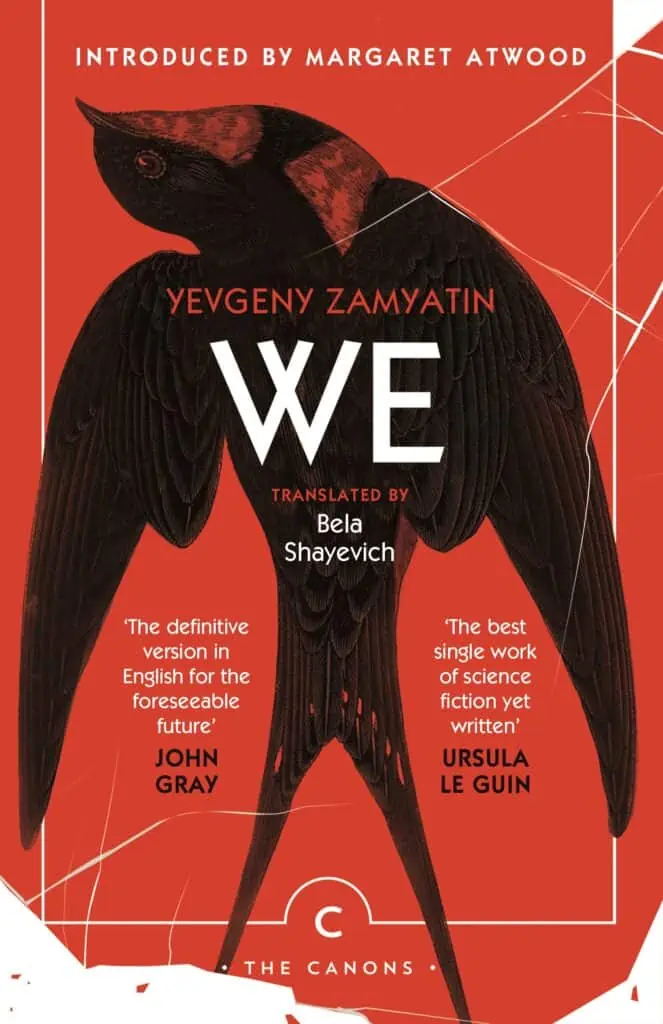
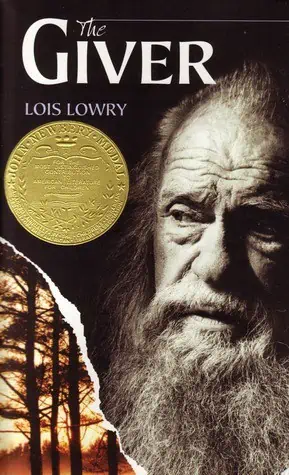
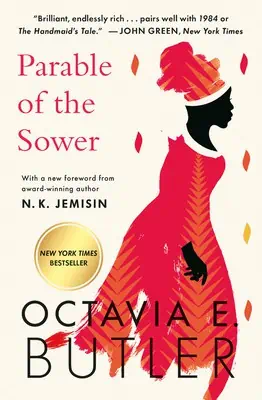
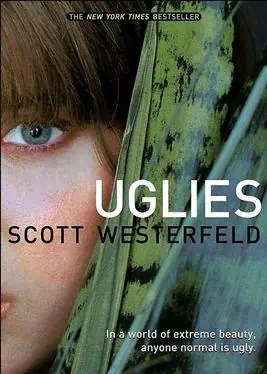
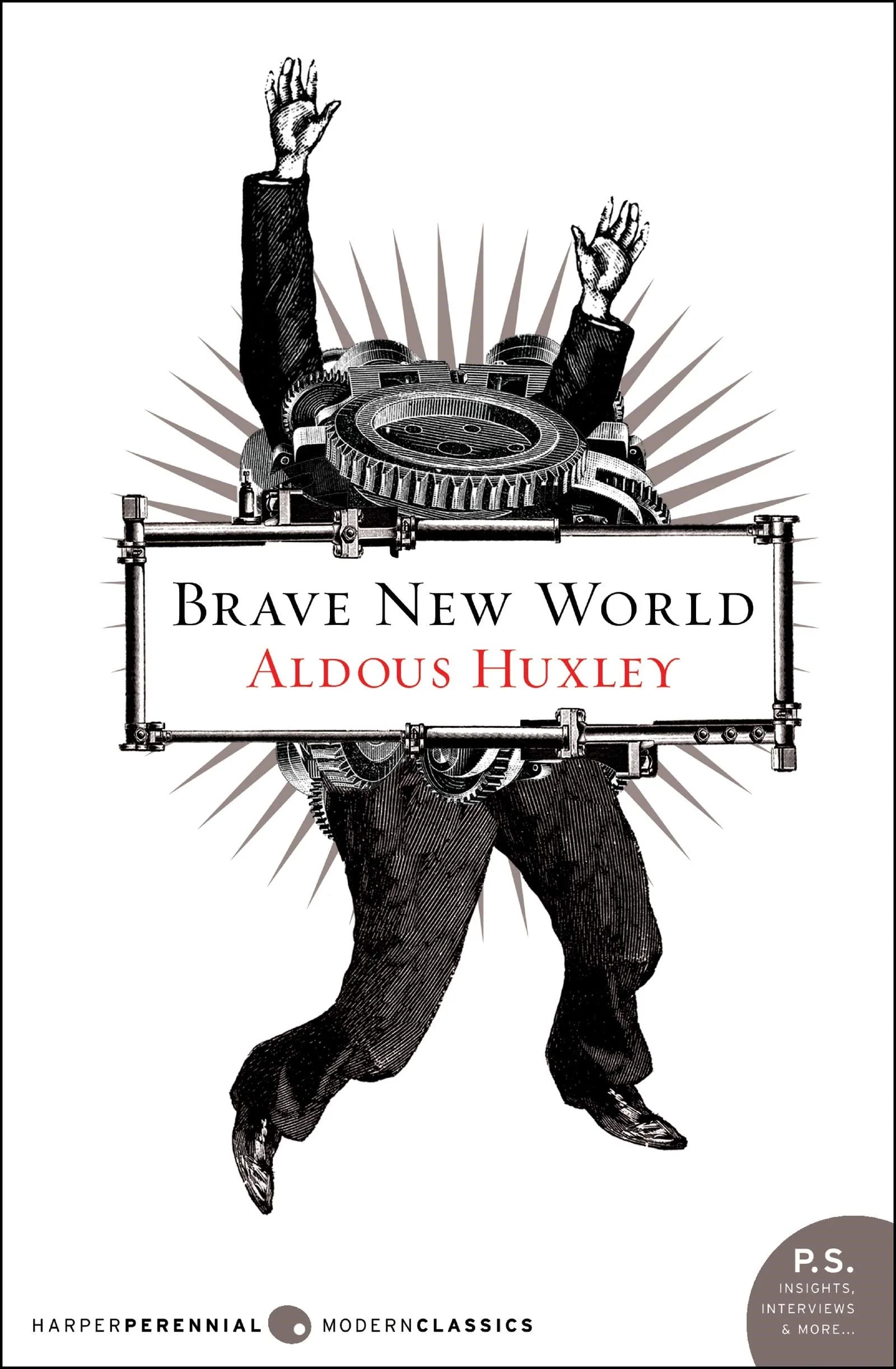
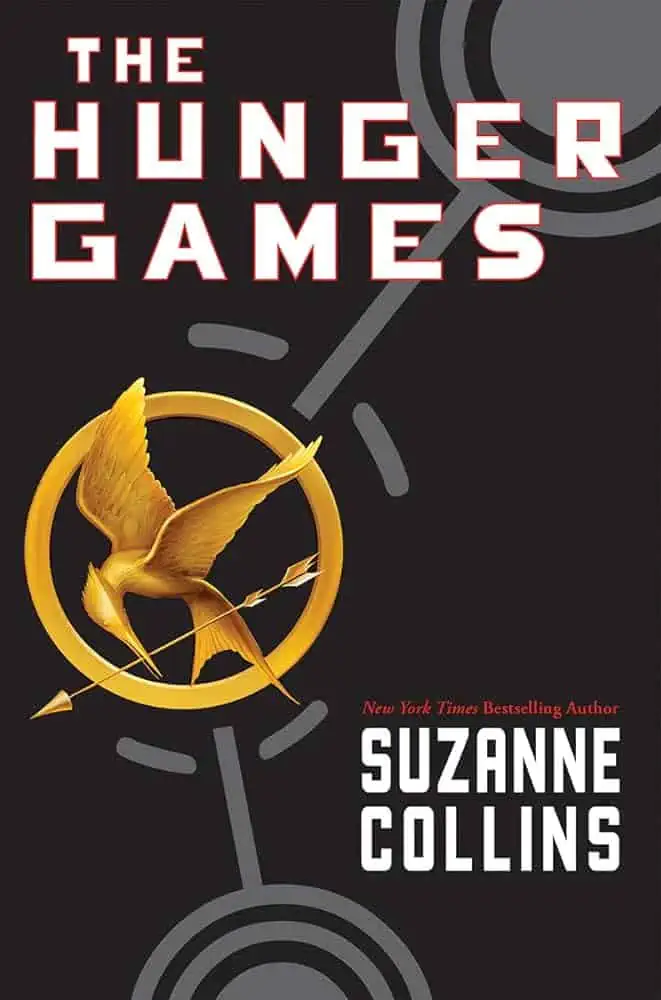
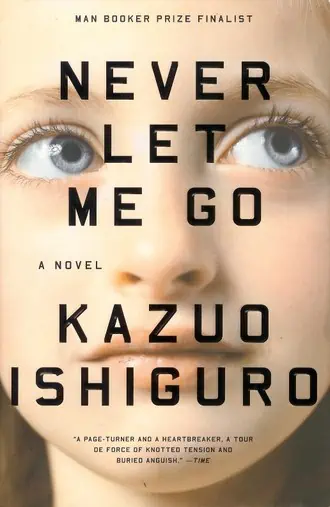
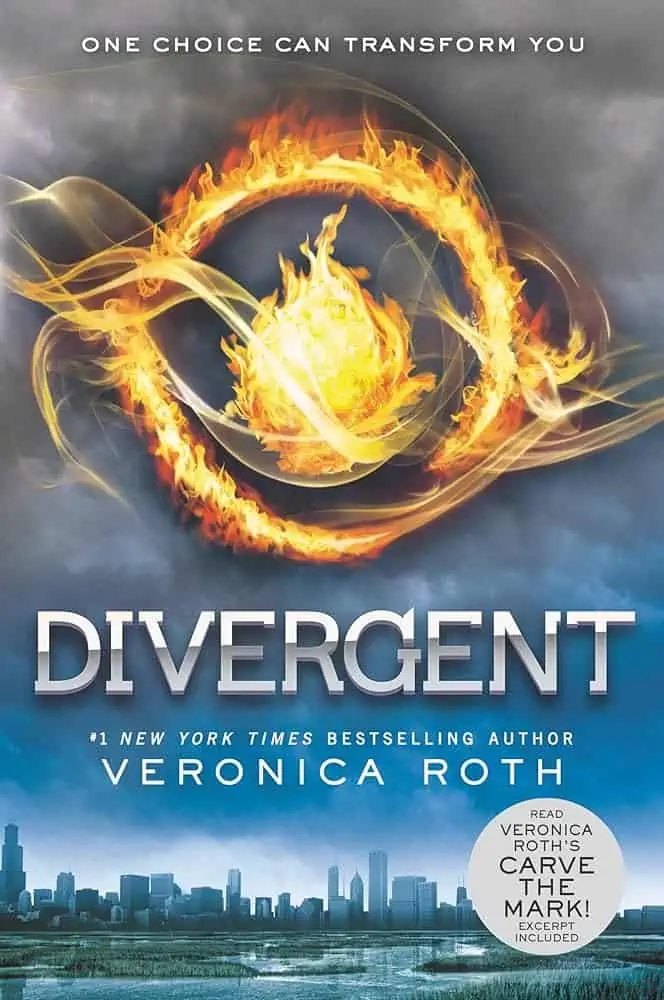
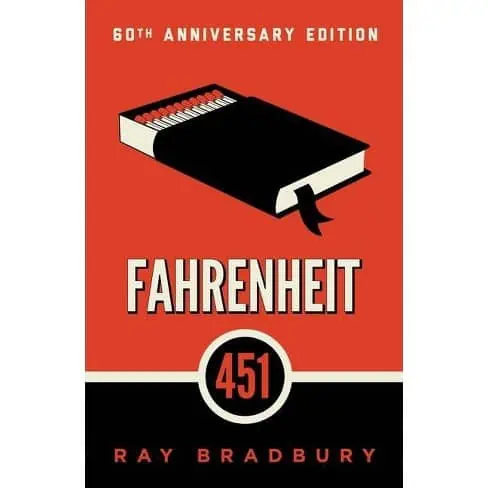
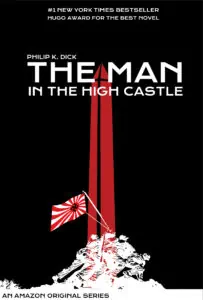
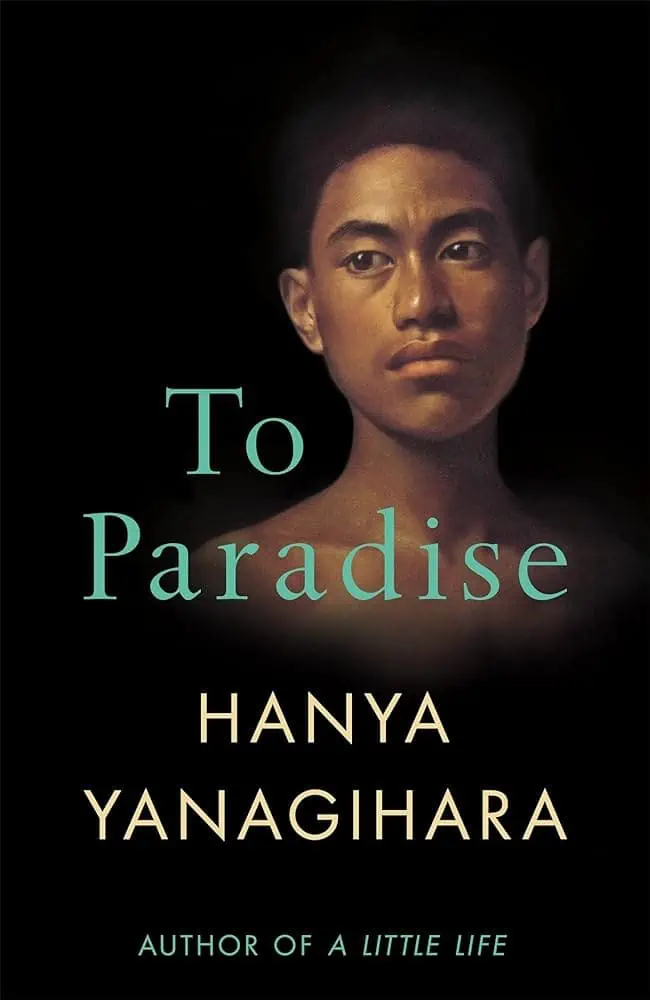
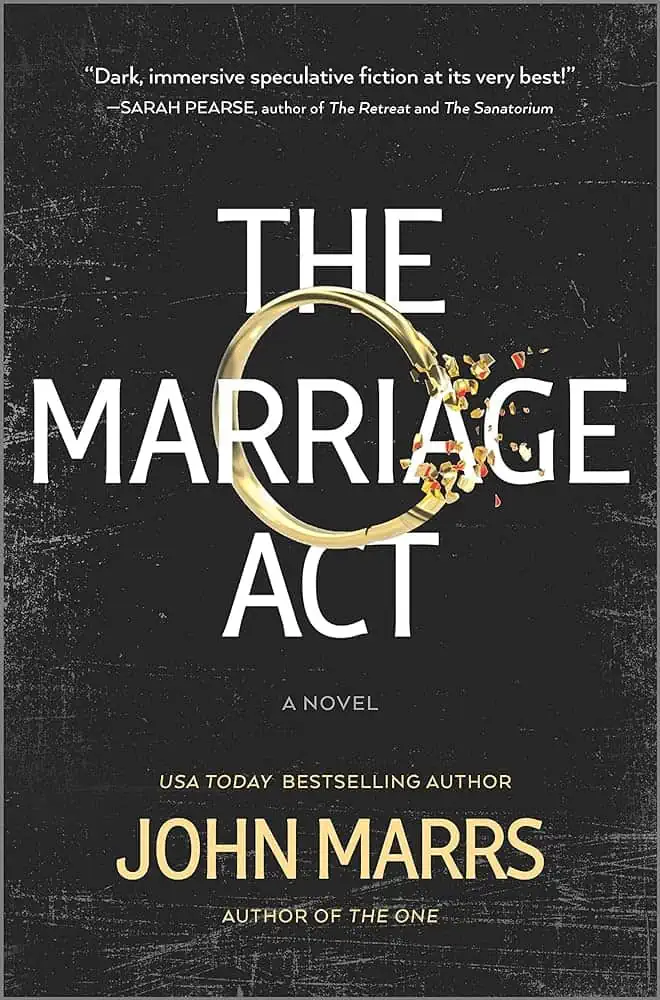

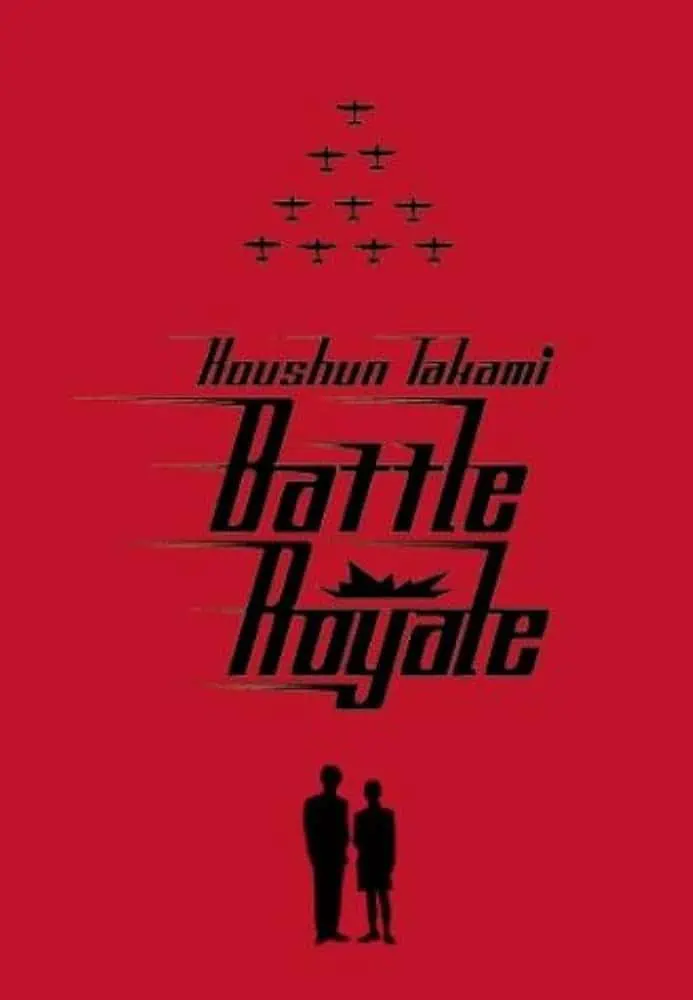
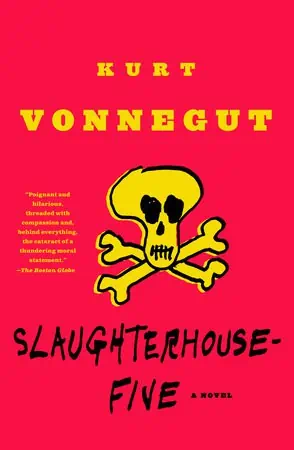
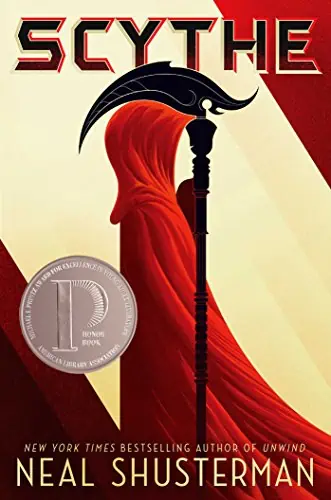


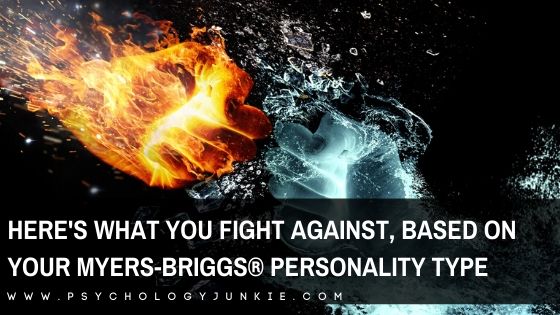
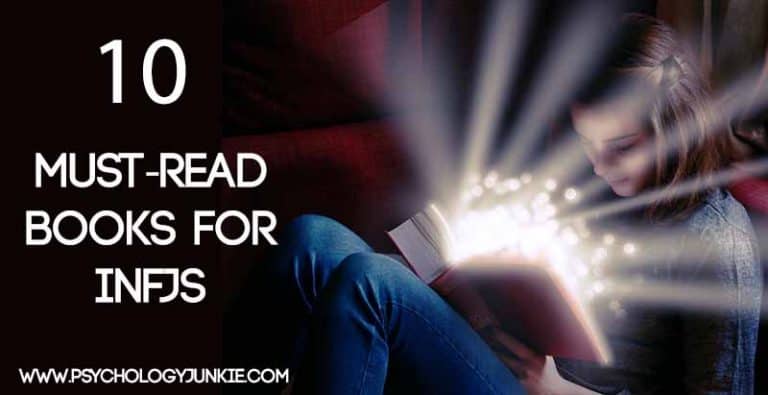
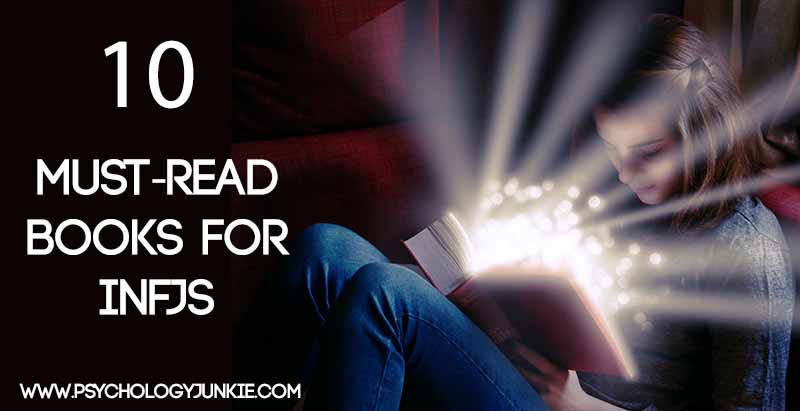
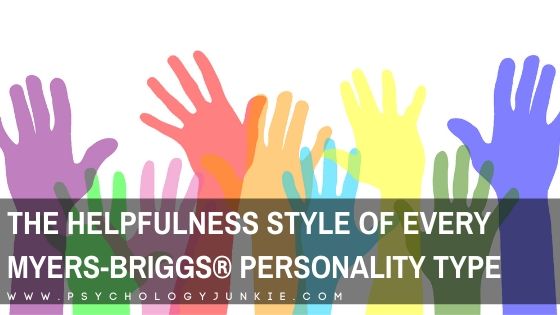
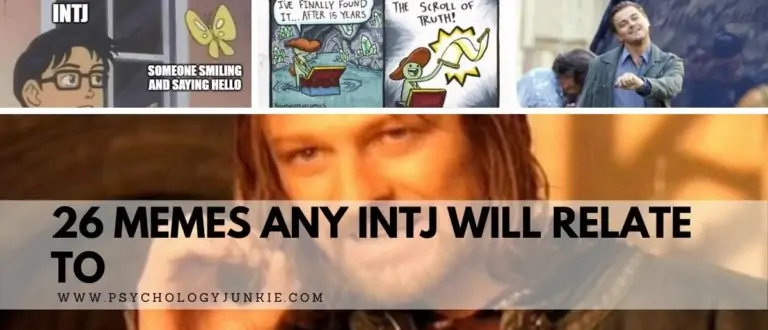
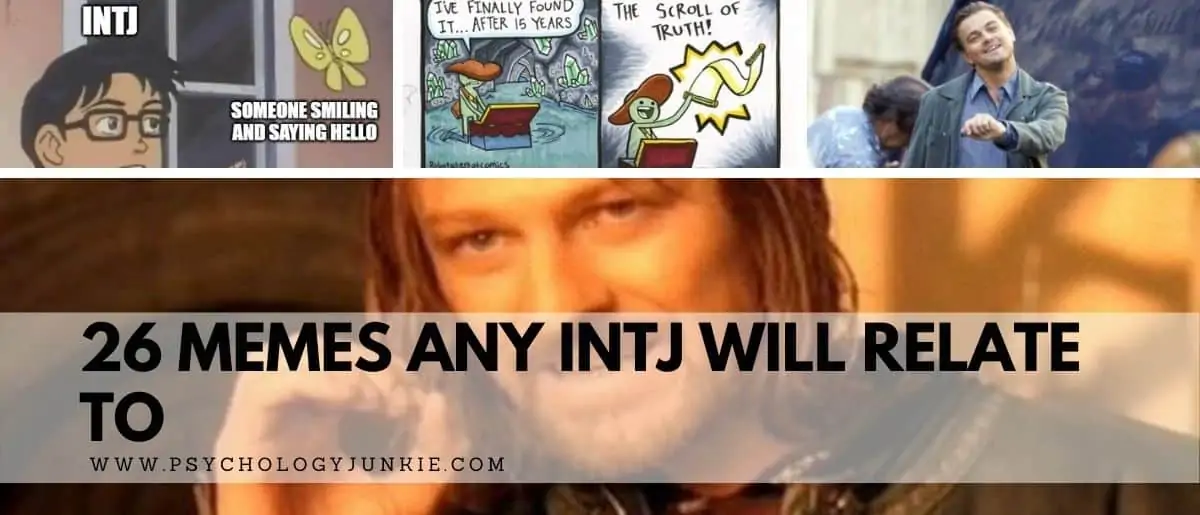
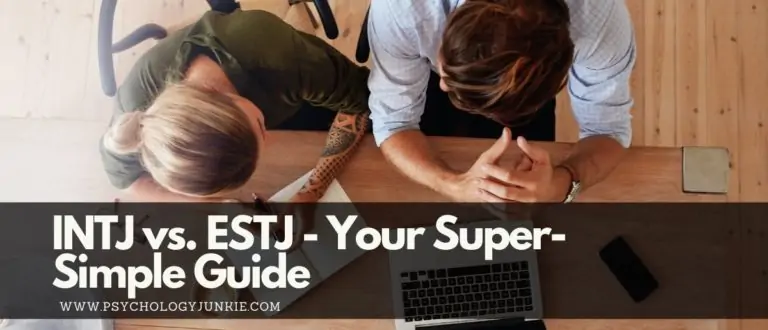
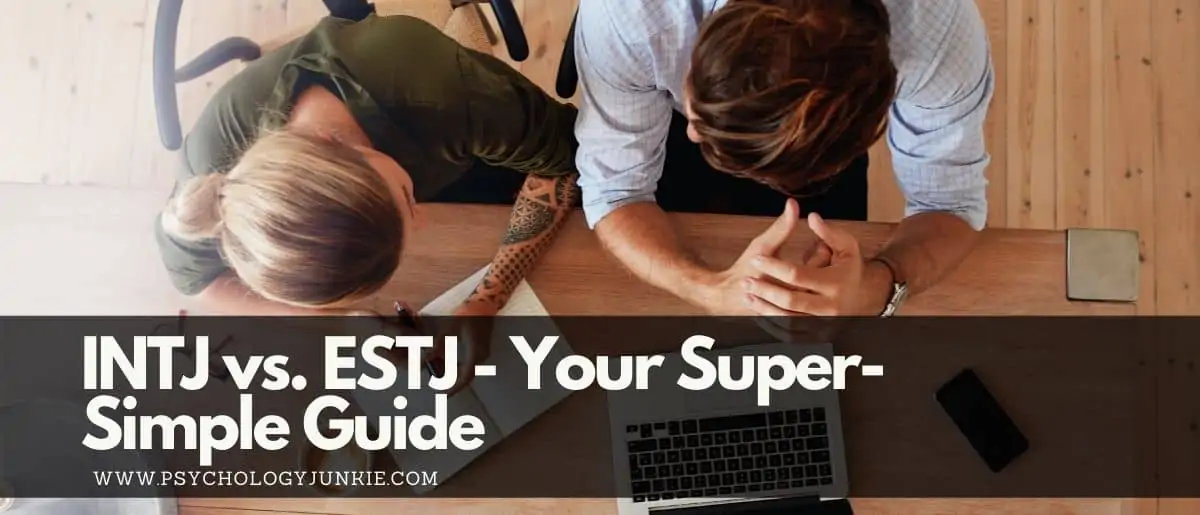
dead right on ISTP dystopian book “Hunger Games”. I found it interesting and a unique setting. Watched the movies with interest, without the fear or revulsion of the other books described. Read 1984, F451, Brave New World; dropped Slaughterhouse 5 early. While interested in alternate history, “High Castle” remains unchosen because, as a boomer, it was close history to me that I don’t want to live. Also, the country and the world are trashed by greed, narcissism, and worship of money. We are too close to being condemned in the current world.
Enjoy PsychJunkie, keep it coming, Susan.
I think it is very nice of you to go through all those books to find which one each type might like best.
Very thoughtful!
🙂
Thanks for the fascinating article! It definitely opened my eyes to some new titles to add to my 2024 list. 🙂
I haven’t heard of “We” before but I’ll have to check it out now!
My ISTJ mom indeed liked The Giver. She said that world was a good one until they killed babies.
My ISTP daughter is quite a bit like Katniss, so The Hunger Games does seem to suit her.
My ENTP ex never read 1984, but he wasn’t impressed with the movie.
I don’t think Slaughterhouse 5 is dystopian. It’s more historical fiction.
I noticed The Handmaid’s Tale was left out of the list. I think it would be well suited for ISFJ. I think Uglies would be better suited for ESFPs.
Here’s a relatively new dystopian series I recommend: Mij’s Testament by Gail O. Dellslee. The first book takes place in the past on a deserted island, the second one is the dystopia in modern to near-future America, and the third is a utopia in the future.
Oh, I forgot to say that I think a great dystopia for an ENTJ would be Atlas Shrugged! It’s all about the producing CEOs taking themselves out of society because society increasingly favors/rewards the incompetent, lazy, & inefficient and punishes the people who are wealthy or produce well.
As an INxP, I’ve read WE by Zamyatin, Hunger Games and divergent. I’ll add parable of the sower, never let me go, and maybe All the books to my imaginary bookshelf. Thanks for a great list of books for these dystopian days.
Wow! I so rarely meet anyone who’s read WE so that made me smile 🙂 I hope you enjoy the other ones!!
We read a few of these in high school – including Brave New World (the recommended title for INTPs) – and I found them all depressing and mostly pointless from a teenage perspective. I’m not sure they’d be worth my time rereading in adulthood as they might present valid “what if” scenarios (Fahrenheit 451, 1984) but otherwise seem written from a jaded view of the world, like a lot of supposed “American classics”.
Still, the popularity of these titles (particularly “The Marriage Act” – did I say jaded?) and the genre as a whole is telling in that they reveal the hidden or not-so-hidden societal fears of their generations. Several of these are unfamiliar, but I may have to get a copy of “We” as it was never mentioned alongside Orwell’s works, and I wonder if my teachers even knew it existed. Do I get bonus points if I read it in the original Russian?
The point of any fictional story is to entertain. But an additional point of a dystopian story is to show you what is possible when the government tries to make society perfect (an impossible goal, most people believe, and yet real governments and people still strive for it). It just presents the possible future as a negative world, instead of science fiction which shows the future as a positive world.
As an ENTP, I feel our pick is completely spot on, as mainstream as it probably is, I consider 1984 one of the best books I’ve ever read and definitely one of my absolute favourites exactly for the reasons you listed!
Thank you for the great list of dystopian books I’m always on the lookout for more, I’ll take a look into The Marriage Act and To Paradise as soon as possible!
I will have to check out WE, I have been wanting to look into Fahrenheit 451 for a while, but keep putting it off. As far as Anime goes, I highly recommend Dr. Stone. It is about a High School senior who is planning to go into science who is trapped in stone for thousands of years only to wake up in a completely wild world void of other humans, and he has to use his knowledge of science to make things.